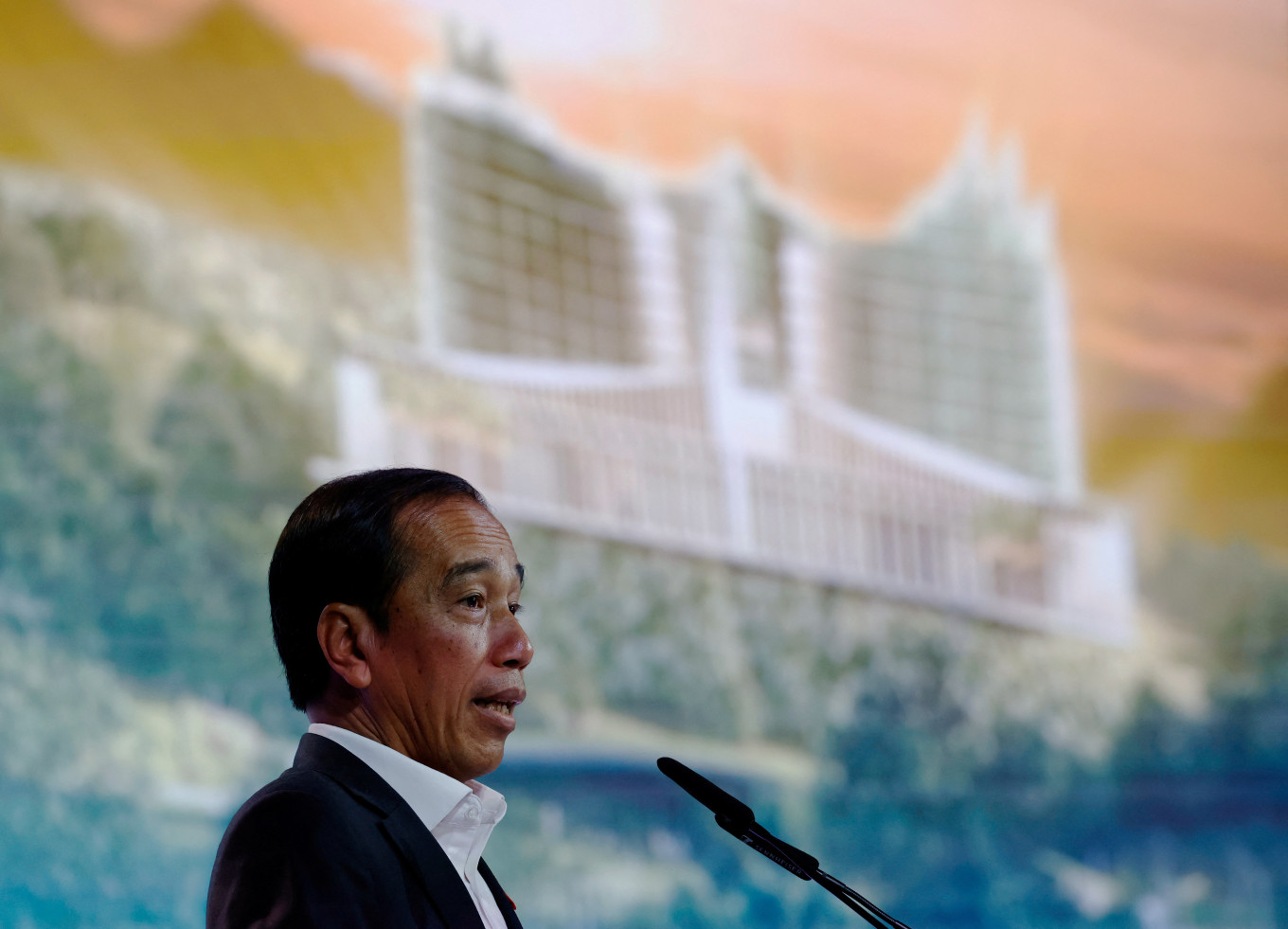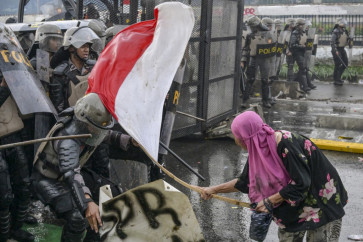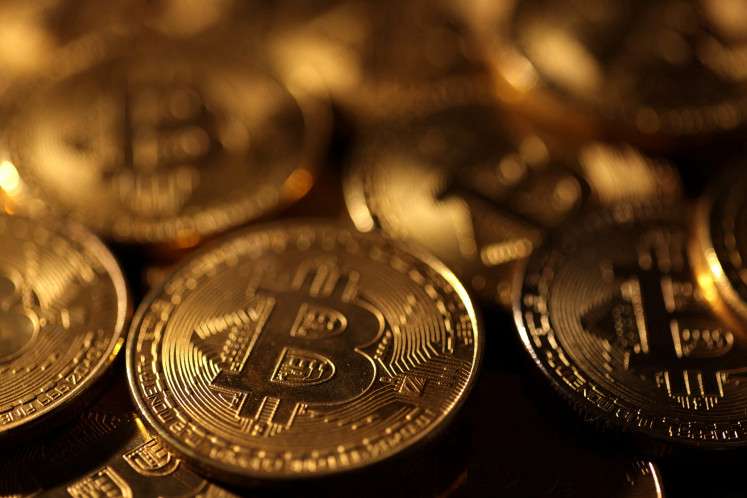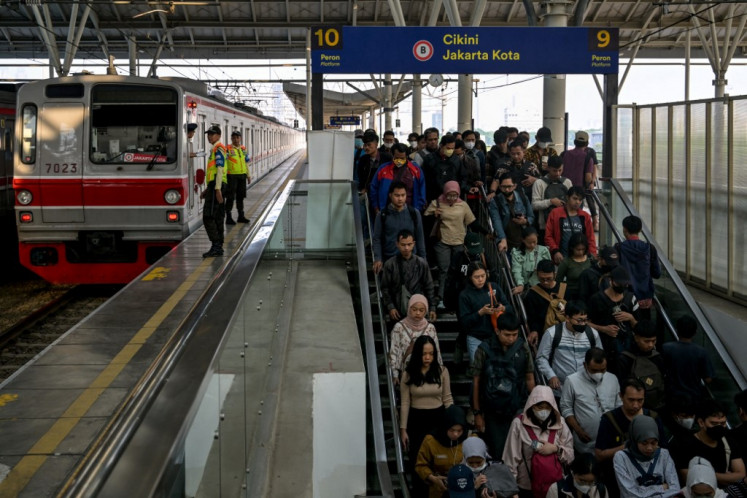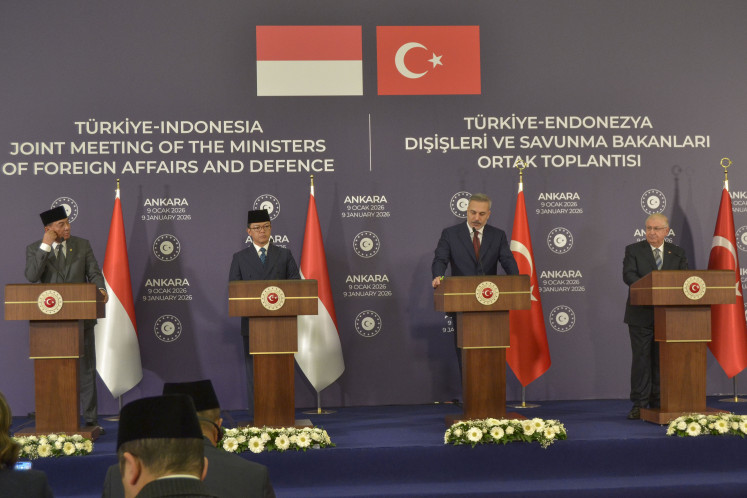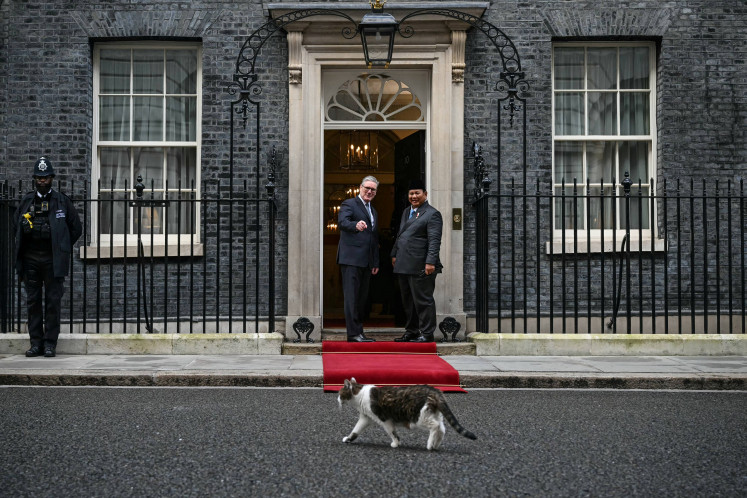Popular Reads
Top Results
Can't find what you're looking for?
View all search resultsPopular Reads
Top Results
Can't find what you're looking for?
View all search resultsCan Indonesia beat its own path to superpower status?
Under the leadership of President Joko ‘Jokowi’ Widodo since 2014, Indonesia’s economic policy has undergone a significant gear change and one that has finally woken the world up to its growing economic clout.
Change text size
Gift Premium Articles
to Anyone
T
hose that spend a lifetime struggling with development challenges across the globe are haunted by the many pitfalls in the path to poverty eradication.
Despite a cultural, historic, and linguistic gulf, middle-income nations like Brazil, Mexico, Turkey, and South Africa suffer from similar internal failures, from flawed infrastructure to democratic backsliding and ethnic strife.
They also face seemingly insurmountable external pressures. Even Africa and South and Central America’s wealthiest nations rank poorly for creditworthiness, constraining government-led investment and precluding the kind of economic environment that international investors like.
Natural resources in emerging markets can bring about as many challenges as opportunities. Commodity exports buoy government revenues, yes, but often inspire conflict, corruption, and painful downturns when prices eventually fall.
However, these problems – coming from both within and without – are by no means an impossible fix.
Much of now booming Southeast Asia provides a template for other nations looking to break free of past horrors, including colonialism and deadly infighting, and continue their ascendancy to high-income status.
Indonesia, as the region’s largest democracy with over 270 million people, is perhaps the best example in this regard.
The archipelago nation lurched from “guided democracy” after independence to an authoritarian but development-minded dictatorship in 1965.
Indonesians directly elected a president for the first time in 2004 but democratic reform has since ushered in a period of strong economic growth and political stability. Power has changed hands peacefully over the past two decades, while gross domestic product per capita has multiplied sixfold since 2000.
Political stability has cultivated economic prosperity (and vice versa). The combination of a young population with an enormous domestic market has also enticed foreign investors to plough funds into Indonesia’s export and consumer goods industries.
Foreign direct investment inflows rocketed from US$8.3 billion in 2005 to just under $25 billion on the eve of the pandemic.
And yet, despite the role of investment incentivization in Indonesia’s economic mix, attributing the country’s performance to the classic capitalist model would underplay the role of its government and population.
Under the leadership of President Joko ‘Jokowi’ Widodo since 2014, Indonesia’s economic policy has undergone a significant gear change and one that has finally woken the world up to its growing economic clout.
The Jokowi administration, leaning in to enduring nationalist sentiment at home and in contravention of neoliberal norms, has significantly increased the role that Indonesia’s state-owned enterprises (SOEs) play in the economy.
Jokowi has empowered state firms in the construction sector in particular to drive infrastructure development as the foundation stone of his agenda. SOEs are also key players in the export of Indonesia’s agricultural and mineral resource exports, either alone or in coordination with the private sector.
Erick Thohir, the current SOEs minister, is one of Jokowi’s closest political allies and was tapped for the job by the President in 2019 to take the project forward.
A successful businessman in his own right and the former owner of Inter Milan, Erick’s private sector expertise has helped to both maintain growth and direct Indonesia’s SOEs to dealing with voter priorities such as inflation and employment.
Progress has been steady. By the end of 2021, his ministry’s assets under management (AuM) equated to approximately 53 percent of Indonesia’s GDP, while SOEs posted record dividends of $5.3 billion in 2023.
Since 2014, therefore, the Jokowi administration has picked a developmental path between classical economics and the attempts at socialism (democratic or otherwise) that have faltered from Bolivia to Ghana and even in Indonesia itself.
It’s worth noting that the archipelago is not alone in practicing “enlightened intervention” in Southeast Asia. Vietnam, though not democratic, has also stimulated growth through state direction and investment.
However, what is unique about Indonesia is that the country is not only bearing down on securing high-income status by 2050, but has even begun to drive the global economic conversation.
The Jokowi administration’s post-2018 “downstreaming” policy, under which international firms were mandated to manufacture raw materials like nickel within Indonesia’s borders rather than exporting it abroad, captured the international media’s attention and received pushback from both the United States and European Union.
Opposition to Indonesia’s resource nationalism has not distracted from its success, however. By 2023, the country’s exports of nickel products had surged to $30 billion, up from just $3 billion in 2013.
Despite this and other impressive economic innovations, Indonesia is by no means a flawless nation or without serious challenges.
Ethnic tensions still loom large and a recent corruption scandal shows that graft remains in the political system. Indonesia’s dependence on coal also raises questions in an era of climate crisis.
That said, for leaders in emerging markets intent on growing their economies while maintaining a strong degree of independence from former colonial powers, Indonesia’s recent history offers a number of compelling lessons, from the muscular role of state firms in the economy to the management of national resources.
With the West facing widespread stagnation, the 21st century has been billed as being Asia’s to lose. Indonesia’s economic dynamism and according political stability are a great help in explaining why.
***
The writer is BBC's former world assignments editor and Africa bureau chief.

